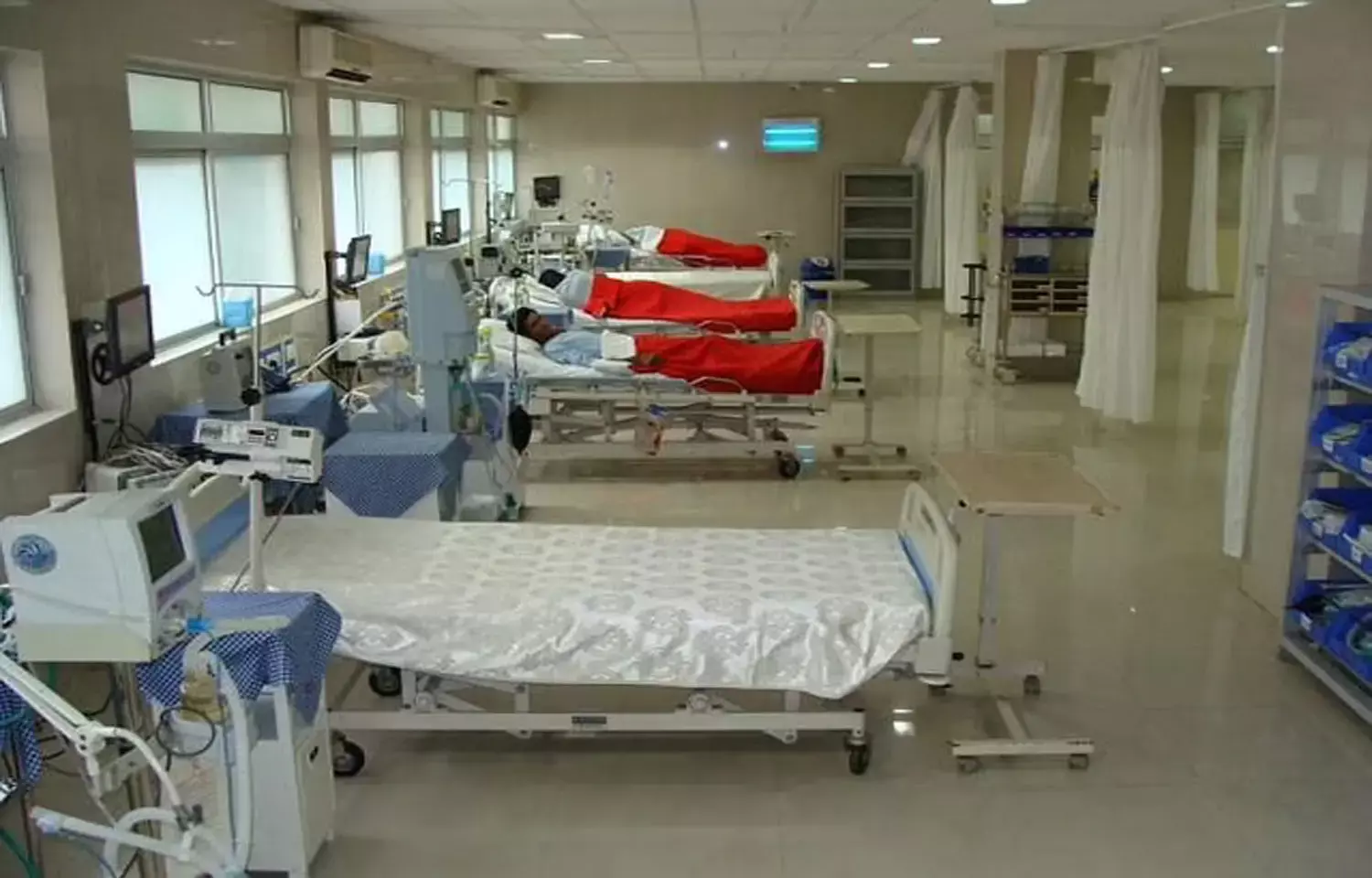- Home
- Medical news & Guidelines
- Anesthesiology
- Cardiology and CTVS
- Critical Care
- Dentistry
- Dermatology
- Diabetes and Endocrinology
- ENT
- Gastroenterology
- Medicine
- Nephrology
- Neurology
- Obstretics-Gynaecology
- Oncology
- Ophthalmology
- Orthopaedics
- Pediatrics-Neonatology
- Psychiatry
- Pulmonology
- Radiology
- Surgery
- Urology
- Laboratory Medicine
- Diet
- Nursing
- Paramedical
- Physiotherapy
- Health news
- Fact Check
- Bone Health Fact Check
- Brain Health Fact Check
- Cancer Related Fact Check
- Child Care Fact Check
- Dental and oral health fact check
- Diabetes and metabolic health fact check
- Diet and Nutrition Fact Check
- Eye and ENT Care Fact Check
- Fitness fact check
- Gut health fact check
- Heart health fact check
- Kidney health fact check
- Medical education fact check
- Men's health fact check
- Respiratory fact check
- Skin and hair care fact check
- Vaccine and Immunization fact check
- Women's health fact check
- AYUSH
- State News
- Andaman and Nicobar Islands
- Andhra Pradesh
- Arunachal Pradesh
- Assam
- Bihar
- Chandigarh
- Chattisgarh
- Dadra and Nagar Haveli
- Daman and Diu
- Delhi
- Goa
- Gujarat
- Haryana
- Himachal Pradesh
- Jammu & Kashmir
- Jharkhand
- Karnataka
- Kerala
- Ladakh
- Lakshadweep
- Madhya Pradesh
- Maharashtra
- Manipur
- Meghalaya
- Mizoram
- Nagaland
- Odisha
- Puducherry
- Punjab
- Rajasthan
- Sikkim
- Tamil Nadu
- Telangana
- Tripura
- Uttar Pradesh
- Uttrakhand
- West Bengal
- Medical Education
- Industry
Conservative management bests invasive management in first 2 years in stable CAD: JAMA

Delhi: Days alive out of hospital (DAOH) is higher for stable coronary disease patients who received conservative management versus invasive management in the first 2 years but did not differ at 4 years, according to a recent study in JAMA Cardiology. The findings imply that Days alive out of hospital (DAOH) can be used by clinicians and patients in shared decision-making for the management of stable coronary artery disease.
"Due to protocol-assigned procedures, Days alive out of hospital (DAOH) was decreased early in the invasive management group. Hospital stays for unstable angina and myocardial infarction during follow-up were lower in the invasive management group," wrote the authors.
Prior to this study, it was known that traditional time-to-event analyses rate events occurring early as more important than later events, even if later events are more severe, eg, death. Days alive out of hospital (DAOH) adds a patient-focused perspective beyond trial endpoints. Harvey D. White, University of Auckland, Auckland, New Zealand, and colleagues aimed to compare DAOH between invasive management and conservative management, including invasive protocol–assigned stays, in the International Study of Comparative Health Effectiveness with Medical and Invasive Approaches (ISCHEMIA) randomized clinical trial.
For this purpose, the researchers conducted a prespecified analysis of the ISCHEMIA trial in which DOAH was compared between 5179 patients with stable coronary disease and moderate or severe ischemia randomized to invasive management or conservative management.
Participants were recruited from 320 sites in 37 countries. Stays included overnight stays in hospital or extended care facility (skilled nursing facility, rehabilitation, or nursing home). DAOH was separately analyzed excluding invasive protocol–assigned procedures.
Key findings of the study include:
- The average DAOH was higher in the conservative management group compared with the invasive management group at 1 month (30.8 vs 28.4 days), 1 year (362.2 vs 355.9 days), and 2 years (718.4 vs 712.1 days).
- At 4 years, the 2 groups' DAOH were not significantly different (1415.0 vs 1412.2 days).
- In the invasive management group, 2434 of 4002 stays (60.8%) were for protocol-assigned procedures.
- There were no clear differences at any time point in DAOH when protocol-assigned procedures were excluded from the invasive management group.
- There were more hospital and extended care stays in the invasive management vs conservative management group during follow-up (4002 vs 1897).
- Excluding protocol-assigned procedures, there were fewer stays in the invasive vs conservative group (1568 vs 1897).
- Cardiovascular stays following the initial assigned procedures were lower in the invasive management group (17.1% vs 57.8%) due to decreased spontaneous myocardial infarction stays (1.6% vs 6.5%) and unstable angina stays (3.0% vs 11.4%).
"Days alive out of hospital (DAOH) can inform patient decisions about trade-offs, with higher DAOH earlier with conservative management but similar DAOH to invasive management at 4 years," wrote the authors.
Reference:
The study titled, "Comparison of Days Alive Out of Hospital With Initial Invasive vs Conservative Management: A Prespecified Analysis of the ISCHEMIA Trial," is published in the journal JAMA Cardiology.
DOI: https://jamanetwork.com/journals/jamacardiology/fullarticle/2779701
Dr Kamal Kant Kohli-MBBS, DTCD- a chest specialist with more than 30 years of practice and a flair for writing clinical articles, Dr Kamal Kant Kohli joined Medical Dialogues as a Chief Editor of Medical News. Besides writing articles, as an editor, he proofreads and verifies all the medical content published on Medical Dialogues including those coming from journals, studies,medical conferences,guidelines etc. Email: drkohli@medicaldialogues.in. Contact no. 011-43720751


